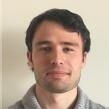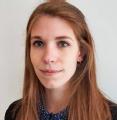CRiSM Workshop on "Fusing Simulation with Data Science"

Jointly organized with Met Office and ECMWF
The workshop will be held at the Department of Statistics, University of Warwick, UK from 18th to 19th July 2023.
Some tips about how to reach University of Warwick.
With our understanding of weather phenomena and their interaction with sea currents, pollutants etc, we have been able to create very complex and elaborate simulator models for numerical weather predictions (NWP). These models rely on specialised “classical” solvers, which are handcrafted to simulate a particular physical process. While accurate and reliable, these solvers produce deterministic solutions, can be quite slow and can only be simulated on a rather restrictive coarse grid for global or regional simulations. Machine learning and computational statistics, broadly data science, has been fused with these classical simulations to assimilate observed data (data-assimilation), to produce probabilistic simulations (stochastic parameterisation or ensemble prediction), to fill the gap between these classical simulations to km-scale weather predictions (statistical downscaling).
Data driven approaches have also been used to create neural PDE solvers for weather forecasting which are competitive with, and in some cases exceed the performance of, traditional NWP models but at a fraction of the computational cost.
The first edition of this workshop on “Fusing simulation with data science”, jointly organised by Dept. of statistics in University of Warwick and Met Office, aims to provide an up-to-date snapshot of this fusion between the paradigm of classical simulations and data science and to facilitate discussion among data scientists (probabilist, applied mathematicians, statisticians and machine learners) and meteorologists about the current opportunities and challenges.
Thematic areas that we expect to be covered in this workshop and we invite contributions include:
- Data Assimilation
- Statistical downscaling
- Spatio-temporal statistics and model emulation
- Data-driven NWP, PDE solvers, and operator learning
- Extreme Values and climate change
Workshop Program
(Abstracts for all the talks can be found here.)
All talks will be held in H0.52 in Humanities building and the lunch and poster session would be in the atrium of Mathematical Sciences Building.
- Day 1: Morning Tea and Registration (9:30-10:00)
- Day 1 - Session 1 (10:00-11:40)
Chair: Peter Watson, Bristol University
-
- (Invited talk) Phillipe Naveau - “A variational auto-encoder approach to sample multivariate extremes” (30’) [Video]
- (Invited talk) Alban Farchi - “Online model error correction with neural networks - from theory to the ECMWF forecasting system” (30’) [Video]
- (Contributed talk) Matt Graham - “ParticleDA.jl: distributed data assimilation with particle filters” (20’) [Video]
- (Contributed talk) Massimiliano Tamborrino - “Guided sequential ABC schemes for simulation-based inference” (20’) [Video]
- Day 1: Lunch (11:40-13:00)
- Day 1 - Session 2 (13:00-14:40)
Chair: Francois-Xavier Briol, University College London
-
- (Invited talk) Dan Crisan - “Calibration of stochastic parametrizations for geophysical fluid dynamic models.” (30’) [Video]
- (Contributed talk) Ryuichi Kanai - “Functional History Matching: A new method and its application.” (20’) [Video]
- (Invited talk) Sebastian Lerch - “Generative machine learning methods for multivariate ensemble post-processing” (30’) [Video]
- (Contributed talk) Bobby Antonio - “Post-processing East African precipitation forecasts using a generative machine learning model” (20’) [Video]
- Day 1: Afternoon Tea (14:40-15:30)
- Day 1 - Session 3 (15:30-17:10)
Chair: Sebastian Lerch, Karlsruhe Institute of Technology
-
- (Invited talk) Maud Lemercier - “Neural Stochastic PDEs: Resolution-Invariant Learning of Continuous Spatiotemporal Dynamics” (30’)
- (Contributed talk) Sigurd Assing - “One way to turn the primitive equations into stochastic dynamical systems for climate modelling” (20’) [Video]
- (Invited talk) Lorenzo Pacchiardi - “Probabilistic Forecasting with Generative Networks via Scoring Rule Minimization” (30’) [Video]
- (Contributed talk) Marvin Pfortner - “Physics-Informed Gaussian Process Regression Generalizes Linear PDE Solvers” (20’)
- Day 1: Poster Session (17:10-18:30): (Abstracts for all the posters can be found here.)
- Day 2 - Session 1 (9:00-10:40)
Chair: Ritabrata Dutta, University of Warwick
-
- (Invited talk) Johanna Ziegel - “Easy Uncertainty Quantification (EasyUQ): Generating predictive distributions from single–valued model output” (30’) [Video]
- (Contributed talk) Peter Watson - “Machine learning applications for weather and climate need greater focus on extremes" (20’) [Video]
- (Invited talk) Francois-Xavier Briol - “Multilevel Bayesian Quadrature” (30’) [Video]
- (Contributed talk) Andrew Kirby - “Data-driven modelling of turbine wake interactions and flow resistance in large wind farms” (20’) [Video]
- Day 2: Morning Tea (10:40-11:20)
- Day 2 - Session 2 (11:20-13:00)
Chair: Tom Dunstan, Met Office
-
- (Invited talk) Frank Kwasniok - "Data-driven deterministic and stochastic subgrid-scale parameterisation in atmosphere and ocean models" (30’) [Video]
- (Contributed talk) James Briant - “Machine Learning and Climate Model Fusion: Embedding High Resolution Variability into a Coarse Resolution Climate Simulation” (20’)
- (Invited talk) Matthew Willson - “GraphCast: Learning skillful medium-range global weather forecasting” (30’)
- (Contributed talk) Fiona Turner - “Emulating ice loss: building probabilistic projections of sea level rise with Gaussian process emulation” (20’)
- Day 2: Lunch and End of Workshop (13:00-14:00)
Attendance and Registration
While the main focus of the workshop is towards an in-person event, remote attendance will be possible. Attendees would be provided with free lunch and drinks during the coffee break.
Free attendance, but to avail free lunch you need to register.
(Registration closes on 15th June.)
If you want to present your work as a contributed speaker or in the poster session please submit title and abstract when you register. If you want to present your work please register and submit your work by 15th May.
Organising Committee: Ritabrata Dutta (University of Warwick), Tom Dunstan (Met Office), Matthew Chantry (ECMWF), Peter Watson (University of Bristol)
Contact: Ritabrata Dutta, Ritabrata.Dutta@warwick.ac.uk











